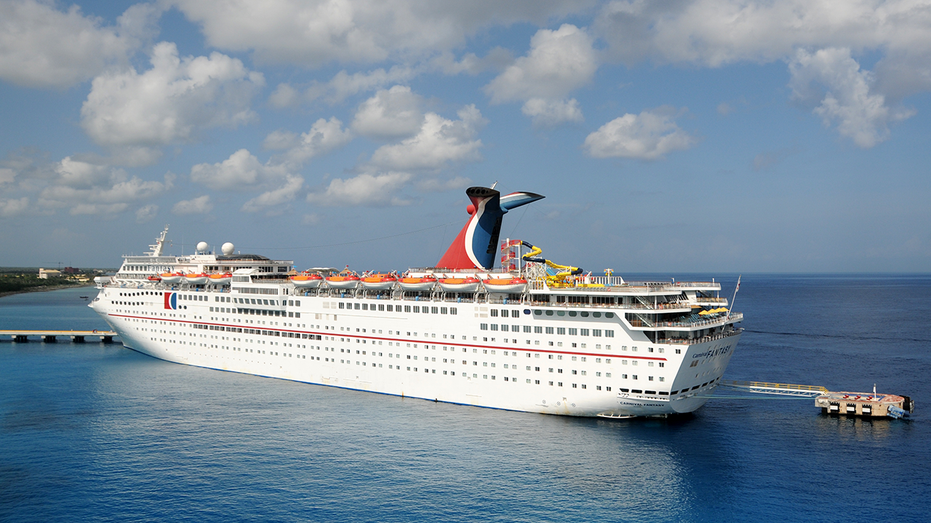Carnival Corp. drops 'King James' trademark application after LeBron James files opposition
Carnival Corp.'s former CEO was also the owner of the Miami Heat when James played with the team
If you come at the King, you best be prepared for at least a lengthy legal battle.
The Carnival Corp. has reportedly dropped its plans to trademark the term “King James” for use as the name of a cruise ship, after NBA star LeBron James – whose fans loyally refer to as King James – filed an opposition.

LBJ Trademarks, LLC., filed an opposition to Carnival Corporation's trademark in November. (Harry How/Getty Images)
The cruise giant, which operates Carnival Cruise Line, P&O and Princess Cruises, among others, had originally filed for the trademark in August 2019, revising it several times before it was accepted for review by the U.S. Patent and Trademark Office, the Miami Herald reports. But on Nov. 18, James’ limited liability company, LBJ Trademarks, filed an opposition claiming that a “King James” ship would erroneously suggest a partnership or agreement between himself and Carnival, according to the outlet.
Just over a week later, Carnival Corp. reportedly withdrew its application.
ROYAL CARIBBEAN SAILS FIRST CRUISE SINCE SUSPENDING OPERATIONS 9 MONTHS AGO
It’s unclear which cruise line Carnival intended for its “King James” ship. A representative for Carnival did not immediately respond to a request for comment.
The cruise company, meanwhile, was likely aware of LeBron’s nickname when first filing for the trademark in 2019. The cruise corporation is headquartered in Doral, Fla., in Miami-Dade County – James played for the Miami Heat between 2010 and 2014.
Carnival chairman and former CEO Micky Arison is also the owner of the Miami Heat, which he took over in 1995.

Carnival Corporation's chairman and former CEO Micky Arison is the current owner of the Miami Heat, and had assumed ownership before Lebron James started his tenure with the franchise in 2010. (iStock)
GET FOX BUSINESS ON-THE-GO BY CLICKING HERE
James, meanwhile, hasn’t always been so successful in his trademark endeavors. In 2019, after attempting to trademark the term “Taco Tuesday,” James was denied on the grounds that the phrase was too “commonplace,” the U.S. Patent and Trademark Office said, per ESPN.
Nevertheless, James’ spokespeople told the outlet that this news was good enough for James, as it meant he couldn’t be taken to court for using the phrase on items intended for resale.



















